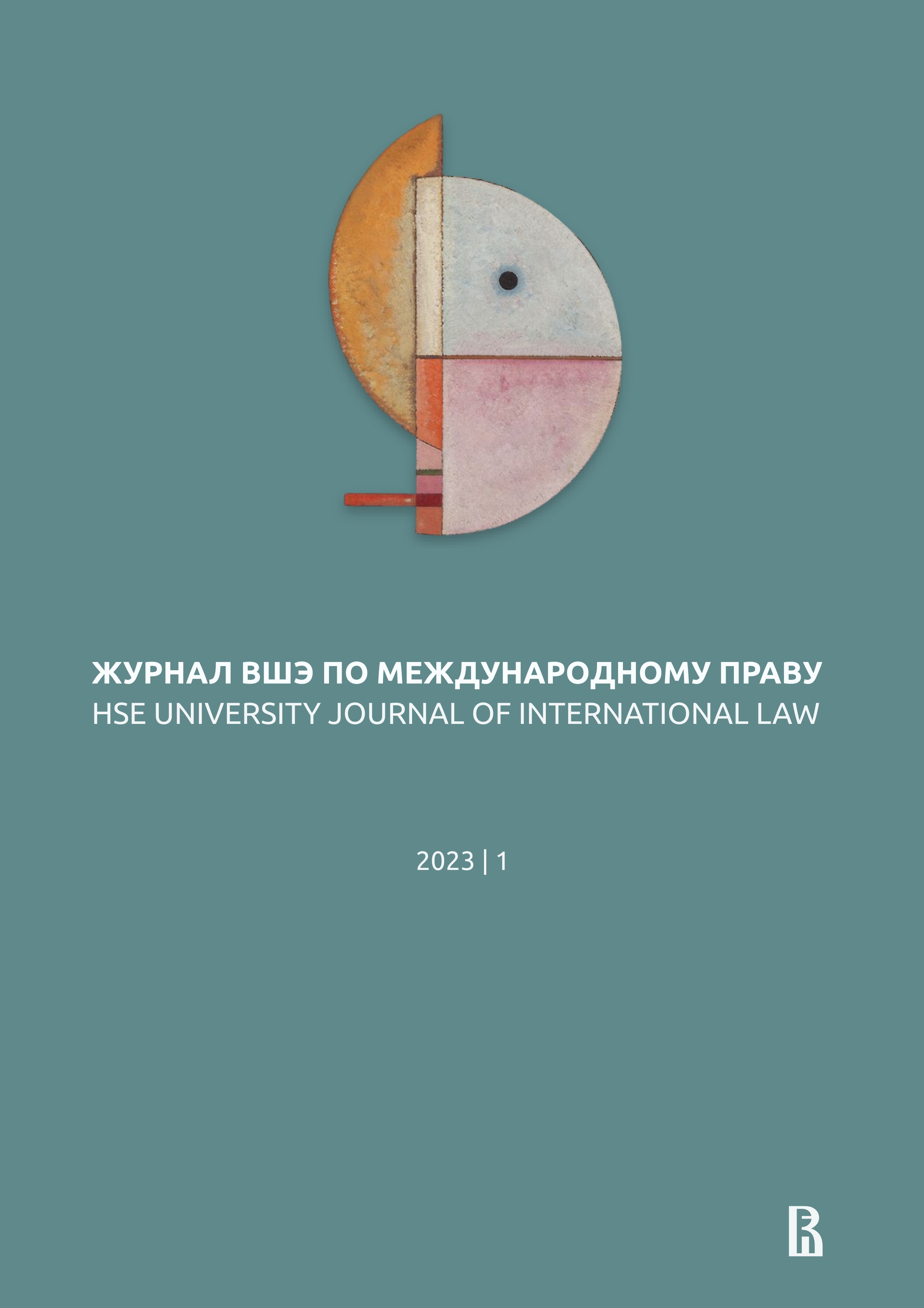Ukraine v. Russia: a Commentary on the Order of 16 March 2022 on the Request for the Indication of Provisional Measures
Abstract
In the last two decades almost all disputes submitted by the States to the International Court of Justice are accompanied by the requests for the indication of provisional measures. This allows the applicants to learn the Court’s attitude to the arguments put forward in favor of the Court’s jurisdiction over the dispute and its attitude to the claims on the merits of the dispute. For this the parties use the criteria for the application of provisional measures developed by the ICJ such as prima facie jurisdiction and plausibility test. In this regard, the dispute between Ukraine and Russia was no exception. The ICJ has faced the necessity to evaluate creative, so to speak, legal arguments presented by Ukraine to institute the proceedings. The article examines the Court’s approach to the analysis of the criteria for the indication of provisional measures and highlights those moments that have caused the debate within the Court and led to the dissenting opinions of some of the judges. First of all, the plausibility test is actively criticized by the scholars and by the judges of the ICJ itself for ambiguity and uncertainty. However, as shown in the article, it was the uncertainty of this criterion that allowed the majority of the ICJ judges to recognize the fulfilment of this criterion in the present case, stating that the right of Ukraine arising from the text of the Genocide Convention not to become the object of military actions by a third state in order to prevent or punish the commission of genocide is plausible. The Court’s reasoning suggests that the issues of interpretation of the Genocide Convention in conjunction with the norms of the UN Charter and customary international law governing the use of force will be thoroughly examined in the Court’s judgment on the merits. In addition, it is noted that the arguments put forward by Ukraine in favor of the Court’s jurisdiction in this dispute and its justification of the necessity of application of provisional measures have caused a discussion in the academic community about the admissibility of such arguments that are on the verge of abuse of procedural rights by the applicant.
Downloads
References
Fontanelli F. (2021) Once Burned, Twice Shy. The Use of Compromissory Clauses before the International Court of Justice and Their Declining Popularity in New Treaties. Rivista di diritto internazionale, vol. 104, no. 1, pp. 7–39.
Kadysheva O. (2022) Neizvestnaya “sanktsionnaya voyna” i vozmozhnosti mezhdunarodnogo pravosudiya [Unknown “sanctions war” and the possibilities of international justice]. Mezhdunarodnoe pravosudie, vol. 12, no. 4, pp. 91–107. (In Russian).
Kulick A. (2022) Provisional Measures after Ukraine v Russia. Journal of International Dispute Settlement, vol. 13, pp. 323–340. https://doi.org/10.1093/jnlids/idac012
Ohlin J. D. (2022) #Genocide: Atrocity as Pretext and Disinformation. Virginia Journal of International Law, vol. 63, no. 101, pp. 101–164. http://doi.org/10.2139/ssrn.4218005
Rieter E. (2021) Autonomy of Provisional Measures. In: Provisional Measures Issued by International Courts and Tribunals. In: Palombino F. M., Virzo R., Zarra G. (eds.) Provisional Measures Issued by International Courts and Tribunals. The Hague: T.M.C. Asser Press, pp. 55–76. http://doi.org/10.1007/978-94-6265-411-2_4
Sanger A. (2022) False Claims of Genocide Have Real Effects: ICJ Indicates Provisional Measures in Ukraine’s Proceedings Against Russia. The Cambridge Law Journal, vol. 81, part 2, pp. 217–221. http://doi.org/10.1017/S0008197322000265
Treves T. (2021) Litigating global crises. Setting the scene: Legal and political hurdles for State-to-State disputes. Questions of International Law: Zoom-out, vol. 85, pp. 5–15.
This work is licensed under CC BY-NC-ND 4.0


